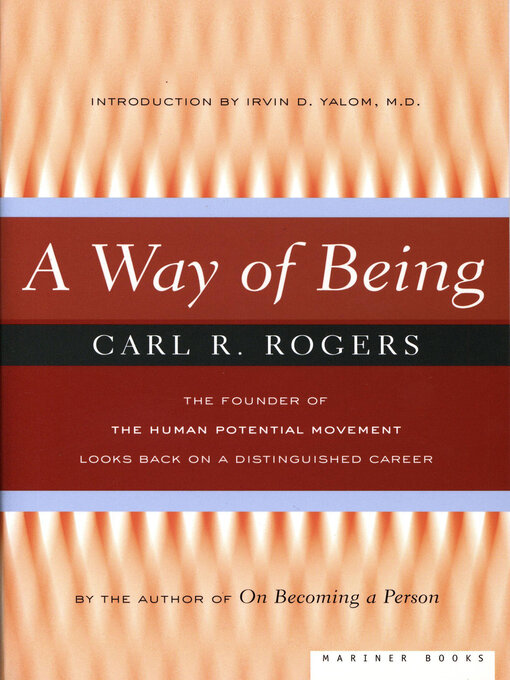
## Metadata
- Author: [[Carl R. Rogers]]
- Full Title: A Way of Being
- Category: #books
## Highlights
- I learned that not only could I trust clients and staff and students, but I could also trust myself. Slowly I learned to trust the feelings, the ideas, the purposes that continually emerge in me. It was not an easy learning, but a most valuable and continuing one. I found myself becoming much freer, more real, more deeply understanding, not only in my relationships with my clients but also with others
- In one experience at Wisconsin, I violated one of the learnings I had so painfully acquired, and discovered what disaster that can bring. In the large research team assembled for the task of studying psychotherapy with schizophrenics, I gave over the authority and responsibility to the group. But I did not go far enough in establishing the climate of close, open, interpersonal communication which is fundamental for carrying such responsibility. Then, as serious crises developed, I made the even more fatal mistake of trying to draw back into my own hands the authority I had given the group. Rebellion and chaos were the very understandable results
- I suppose that my effort with people has increasingly been to liberate “their nature and their destiny.”
- Psychologically, we are a close community, supporting each other but criticizing each other just as openly. Although our director has routine responsibilities, no one is in authority over anyone else. Everyone can do as he wishes, alone or in concert with others. Everyone is responsible for his own support. Currently we have only one small grant, and that from a private foundation. We do not like the strings—often initially invisible—that are attached to large or government grants. There is absolutely nothing holding us together except a common interest in the dignity and capacity of persons and the continuing possibility of deep and real communication with each other. To me it is a great experiment in building a functioning group—a nonorganization really—entirely based on the strength of interpersonal sharing.
- But perhaps my favorite saying, which sums up many of my deeper beliefs, is another from Lao-tse:
If I keep from meddling with people, they take care of themselves,
If I keep from commanding people, they behave themselves,
If I keep from preaching at people, they improve themselves,
If I keep from imposing on people, they become themselves
- I trust I have made it clear that over the years I have moved a long way from some of the beliefs with which I started: that man was essentially evil; that professionally he was best treated as an object; that help was based on expertise; that the expert could advise, manipulate, and mold the individual to produce the desired result
- I find that in more recent years I have enjoyed some of the teachings of Buddhism, of Zen, and especially the sayings of Lao-tse, the Chinese sage who lived some twenty-five centuries ago. Let me quote a few lines of his thoughts to which I resonate very deeply:
It is as though he listened
and such listening as his enfolds us in a silence
in which at last we begin to hear
what we are meant to be.
- For me, being transparently open is far more rewarding than being defensive. This is difficult to achieve, even partially, but enormously enriching to a relationship
- I have found that for me interpersonal relationships best exist as a rhythm: openness and expression, and then assimilation; flow and change, then a temporary quiet; risk and anxiety, then temporary security. I could not live in a continuous encounter group
- if one is seeking a definition of an effective group facilitator, one need look no further than Lao-tse:
A leader is best
When people barely know that he exists,
Not so good when people obey and acclaim him,
Worst when they despise him. . . .
But of a good leader, who talks little,
When his work is done, his aim fulfilled,
They will all say, “We did this ourselves
- What was that idea, that pebble, that crystal? It was the gradually formed and tested hypothesis that the individual has within himself vast resources for self-understanding, for altering his self-concept, his attitudes, and his self-directed behavior—and that these resources can be tapped if only a definable climate of facilitative psychological attitudes can be provided